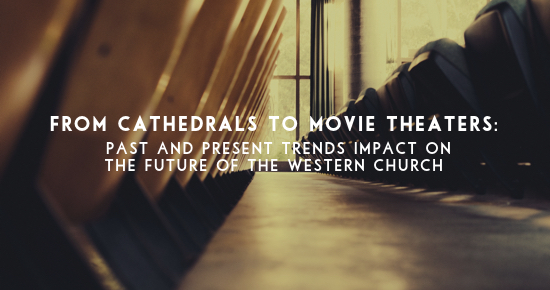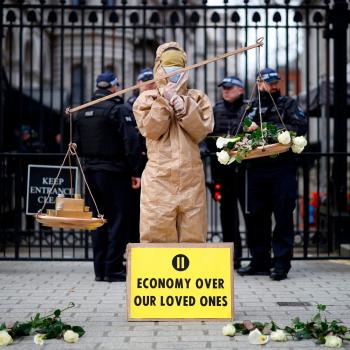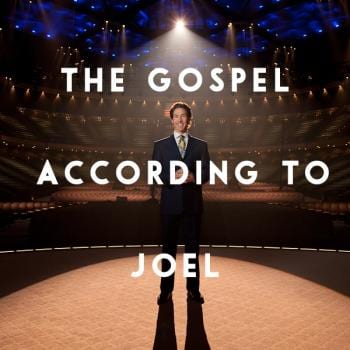A little over 500 years ago we had Martin Luther, John Calvin, and Philip Melanchthon leading the reformation; fast forward, a bit, we see Billy Graham evangelizing to the masses in tent revivals; and soon thereafter there was, and still is, the progressive movement composed of evangelical leaders such as Tony Campolo, Brian McLaren, Jim Wallis, et al.; last but not least, we’ve seen our evangelical-esque, semi-bi-partisan, seeker sensitive model of church lead by guys such as Rick Warren, Andy Stanley, and Billy Hybels.
Some have come to know this as the “consumeristic” version of Christianity. In the words of the president of the Southern Baptist Theological Seminary, R. Albert Mohler Jr., “[it’s] a minimization of the actual content of the Gospel, and a far more diffuse presentation of spirituality[1].”
By now you already know that Churches are closing, millennials are leaving, and seminaries enrollment is dwindling; all the while the “nones” are growing, our context is rapidly secularizing, and seemingly Church leadership is scrambling for answers. Right now, the questions haven’t been more relevant:
- With our present and past nontraditional church trends what can we predict church to look like and/or become in our near future?
- Can we truly engage culture without having to sacrifice the content of the gospel?
- Is what the US has made Christianity into even worth saving?
Needless to say, Churches and Christians alike are slowly but steadily inching away from the traditional form of practicing Christianity.
Traditional church has become a thing of the past; our hymnals have been replaced by projectors, community has been replaced with mega church services; on stage performances have been replaced with video; traditional church buildings replaced with nontraditional movie theaters, night clubs, middle school gymnasiums, and/or trendy concert venues. And currently, mega churches are retroactively breaking down into smaller multisite satellite campus’.
This doesn’t come as a surprise as the very make up of our country is quickly changing. Institutions who have based their very existence on a solidified set of dogmatic beliefs are quickly becoming outdated. Denominations are splitting over theological disagreements; millennial adults and their baby boomer parents aren’t returning; and financially, it seems, both nontraditional and traditional movements are hurting.
But, Here’s the Twist…
Society is supposed to be secular, yet, I can’t help but feel as if everyone I come across is still very religious [err, spiritual]. This sense of urgency in which we as the media, and society in general, seem to perpetuate is nothing but a falsified, conjured up, allusion. The church, it isn’t really dying; it’s merely progressing, changing, adapting, and reforming.
These changes can be so drastic it, at times, feels more like a revolution than any formerly experienced type of reformation. Just take a look at our society in which POC will soon outnumber the nonPOC, singles already outnumber the married, while this unpredictable influx of unprecedented technology is changing… well, the way we in which we do everything.
As a former pastor, I understand the panic; this is more than just a career it’s your life’s calling, your family and friends, and the very foundation in which we have built our life upon (socially, fiscally, relationally and, of course, spiritually).
Change, it’s Tough…
We look at life through a historical lens yes, we see change, but we also see aspects that are constant, seemingly immutable (e.g. relationships, our need for connection, and a strong desire in finding a sense of purpose, meaning and overall need to answer the question, “Why is there something as opposed to there being nothing?).
I think moving into a movie theatre is great so long as we don’t miss the point. It might save a few bucks, involve a few formerly uninvolved congregants, and temporarily stop the bleeding; but, a minor change in location, it won’t keep the church writ large from dissipating.
The U.S. churches future is still uncertain; what is certain is that, what it once was, it will never be again.
This post is part of a Patheos symposium on “Nontraditional Church: Trends for the Future” sponsored by Regal Theatre Church.
Check back on Wednesday for a follow up post regarding “The 3 Things Research is Saying Our Church Must Do in Order to Keep Going into Future Generations.” Until then, feel free to check out these two posts [semi-related to today’s topic]:
How the Internet is Killing Religion
15 Reasons Millennials [STILL] Don’t Go to Church
The Pastor’s Salary: Should Pastors Make 500K?
[1] Mega Church with a Beat Lures a Young Flock, NY Times Article by













